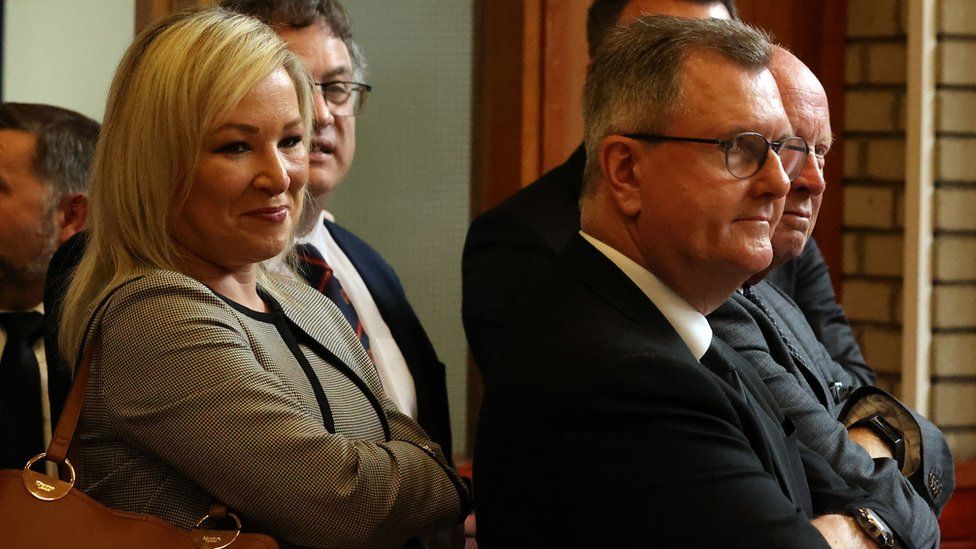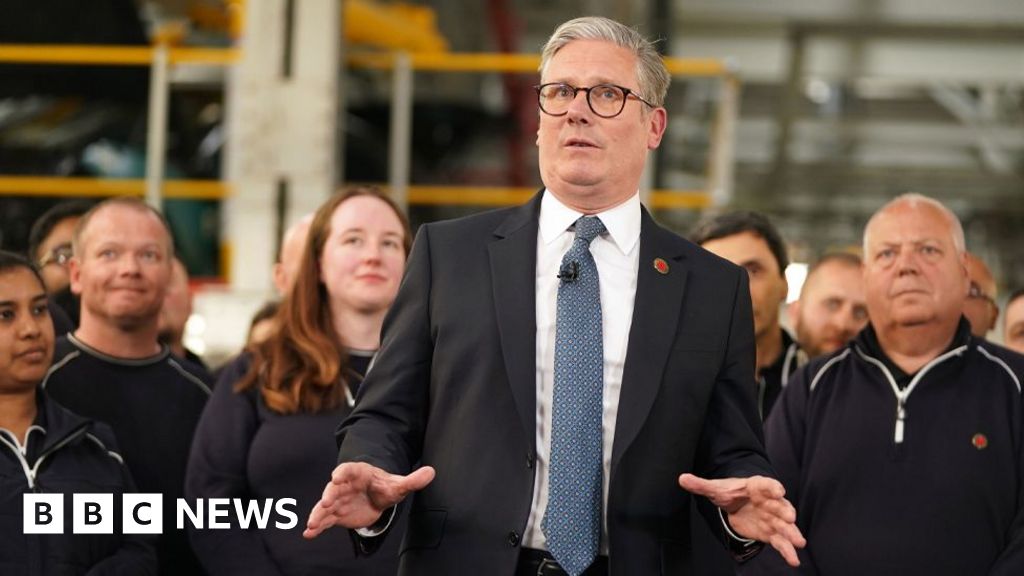ARTICLE AD BOX
 Image source, Pool
Image source, Pool
Michelle O'Neill will be Sinn Féin's nomination for first minister, but it's unclear if Sir Jeffrey Donaldson will be deputy first minister
By Jayne McCormack
BBC News NI Political Correspondent
Devolved government in Northern Ireland will be restored after a 23-month hiatus, following a decision by the Democratic Unionist Party (DUP).
It had been blocking the working of an assembly and executive over concerns about post-Brexit trade arrangements.
But now the DUP has reached an agreement with the government, subject to new legislation, which will see the party re-enter the institutions.
The deal has been agreed, but the practicalities of kicking devolution back into gear still have to play out, so what happens next?
Are the parties back at Stormont yet?
Not yet, but this could all move very quickly, we are being told.
The government is expected to publish the deal in full on Wednesday, and pass the legislation in Parliament on Thursday.
This could then lead to a recall of the assembly by Friday, or even Saturday.
Image source, Liam McBurney/PA
Image caption,Sir Jeffery Donaldson gave a press conference at Hinch Distillery to say a deal had been done
The first order of business for members (MLAs) when they enter the assembly chamber will be to elect a new Speaker - this must happen before anything else.
The election of a Speaker requires cross-community support, so a majority of unionists and nationalists must vote in favour.
In 2020, Sinn Féin's Alex Maskey took on the role.
It has traditionally rotated between unionists and nationalists, so it is probable that the parties will agree to support a unionist in the post this time.
What about the first and deputy first ministers?
Once the Speaker is elected, the parties entitled to jointly lead the executive - the body that makes decisions and policy in Northern Ireland - will make their nominations.
For the first time Sinn Féin will nominate a first minister because it won the most seats in the assembly election last year.
The DUP, as the largest unionist party, will nominate a deputy first minister for the first time.
But it is unclear who that will be.
When Sir Jeffrey became leader he said he would lead the party from Stormont and stood for election in May 2022.
He won a seat, but with Stormont down he remained at Westminster and Emma Little-Pengelly was co-opted into his Lagan Valley assembly seat.
The party has not said who would take the post in a reformed executive.
The DUP previously held the first minister post from 2007 to 2017 and again from 2020 until 2022.
Although the titles are different. both offices hold equal weight and one minister cannot act without the other.
Image source, Liam McBurney/PA
How are other ministers appointed?
There are nine Stormont departments.
They are shared round the parties based on how many MLAs they have using something called the d'Hondt mechanism.
But one department - justice - is decided differently.
Policing and justice powers were not devolved until 2010, but the DUP did not want a Sinn Féin minister to be able to hold the post.
Instead it was agreed any justice minister required a cross-community vote.
Alliance has held the portfolio for every year of devolution bar the 2016-2017 mandate, when independent unionist Claire Sugden was asked to take on the role after Alliance decided not to be part of the executive.
Who will be part of the executive?
Image source, Getty Images
Image caption,The first and deputy first minister will be installed after a Speaker is elected
Sinn Féin and the DUP will jointly lead the executive and are also entitled to several other ministerial posts each.
Alliance saw its number of MLAs almost double to 17 in 2022's assembly election and has indicated it would be willing to take on the justice portfolio again.
It is also expected to be eligible for a second ministry.
The Ulster Unionists are also entitled to a ministerial position.
The SDLP, which as the fifth-largest party has eight MLAs, has said it will not be part of the next executive and will instead go into opposition.
And then is it back to business?
Yes, and there's already a long list of things to do.
Civil servants who have been minding the shop at Stormont for nearly two years will meet their new ministers provide them with their day-one departmental briefs.
It is thought a meeting of the newly formed executive will also take place relatively soon.
After 23 months of political paralysis, a mountain of work is waiting for their return.
At the top of the list will be sorting public sector pay.
Just a few weeks ago more than 100,000 public sector workers in Northern Ireland staged a mass walkout.
The new finance minister will need to set a budget for the new financial year in April and settle those disputes.
The next health minister will also face a plethora of problems - not least grappling with pay - NI health and social care staff remain the lowest paid in the UK.
Waiting lists for elective care have been steadily worsening for the last 10 years - a substantial, sustained, and recurrent funding package is needed to tackle the backlog.

 1 year ago
53
1 year ago
53








 English (US) ·
English (US) ·